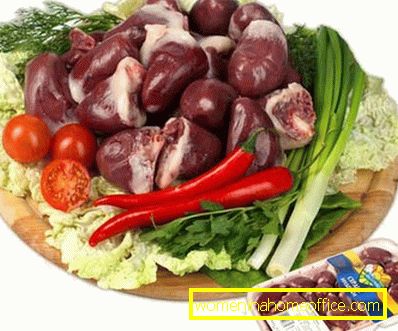Meat
Turkey is the largest poultry whose meat is highly valued by nutritionists around the world. Delicate and practically fat-free turkey is good in fried, boiled, baked. Speaking about the dangers and benefits of turkey meat, it is worth noting that it has become an excellent alternative to chicken meat. Why does it deserve attention?
Why is turkey better than chicken?

Of course, the most popular bird we have had and remains chicken. Relatively inexpensive and moderately useful product is densely prescribed in the menu of each family. However, despite the fact that our people began to use turkey relatively recently, an increasing number of them prefer this particular product. Experts now and then point to its exceptional dietary properties.
In addition to extremely low cholesterol, turkey meat has a rich vitamin spectrum. Especially noteworthy is the content of vitamins A and E, as well as the mass of the most important trace elements, in particular, iron, potassium and calcium. The amount of sodium contained in turkey, distinguishes it from other dietary products, such as chicken or veal. This element is actively involved in the metabolic processes of the body.
The level of fat content of the product provides excellent digestibility of calcium, which plays a key role in the formation of bone and cartilage structures. That is why turkey meat is often recommended to use as part of the prevention of diseases of the musculoskeletal system.
However, turkey wins in chicken meat, not only in the richness of the composition, but also in taste. Try a variety of dishes with turkey fillet or other parts of it - and, perhaps, less useful chicken will give up their positions.
The health benefits of turkey
What is special about meat?

Today it is most preferable to use this product in such cases:
- babies as complementary foods;
- patients with anemia (will be useful due to the high iron content);
- women during lactation;
- for pregnant women, turkey helps replenish folic acid;
- people whose activity is associated with serious physical exertion;
- in stress, depression and insomnia, tryptophan contained in turkey meat will be useful.
The benefits and disadvantages of turkey meat are the subject of ongoing nutritional research. With regard to contraindications and the danger of use, first of all, it is worth noting diseases such as gout, kidney disease and hypertension. In such conditions, use of the product should be limited or eliminated altogether.
In addition, as in the case of any other meat, it is necessary to avoid too active eating, because this can trigger the development of intestinal diseases.
After weighing the benefits and possible harm of the turkey to the body, you can effectively integrate this unique product into your own diet.
Turkey liver: the benefits and harm of the product

Turkey liver in modern cooking has found wide application. The chefs got it to cook excellent pastes, first courses and even salads using this product. However, the soft texture and amazing taste are not the only arguments in its favor. Turkey liver is rich in vitamins, trace elements and amino acids that are important for metabolic processes, as well as maintaining the body's bone and connective structures.
What harm can it do? As a protein-rich product, the liver is undesirable for people with kidney failure or a disease such as gout.
Even to healthy people, a stale liver will naturally do much more harm than good. Therefore, it is important to carefully select the product in the store.
Is it possible to have a turkey heart?

The benefits and harms of this part of the poultry carcass are due to its composition. Turkey heart is considered one of the most useful by-products. It consists of muscle tissue and the consistency is much denser than chicken hearts. Among the nutrients in the composition of the turkey heart are the following:
- vitamin A;
- B vitamins;
- vitamin C;
- iron;
- phosphorus;
- selenium;
- zinc.
One of the specific features of a turkey heart is its smell, which is not to everyone's liking. You can neutralize it using ginger root, adding spice to the dish during frying or stewing.
The harmful heart of turkey can be due to the high concentration of cholesterol. However, moderate use will bring much more benefit than harm.
Turkey Fat: Peculiarities

Turkey fat has also found active use in cooking. This by-product is notable for its high content of essential fatty acids, vitamins E and D, as well as selenium and choline. Fat birds are often recommended for pregnant and lactating women. It is believed that the choline contained in it has a positive effect on the mental development of children. Selenium, which is part of the product, is the basis for the prevention of cancer.
Like any other "colleague" of animal origin, turkey fat can be harmful to hypertensive patients and people with renal insufficiency.
What about broth?

Many are interested in the benefits and harm of turkey broth. The use of the product in this form can also be worthy of competition chicken. Broth cooked in fresh turkey fillet, has a pleasant taste and healing properties. However, it is important to remember that the quality of the broth is very dependent on the quality of poultry meat.
The beneficial effect of turkey on the immune system, heart and blood vessels, the musculoskeletal system and other organs and systems makes it stand out among other mass products of animal origin. Adhering to the rules of storage and preparation of the poultry carcass and its by-products, you can bring maximum benefit to your body. And dishes made from the finest meat will delight even the most demanding gourmets.